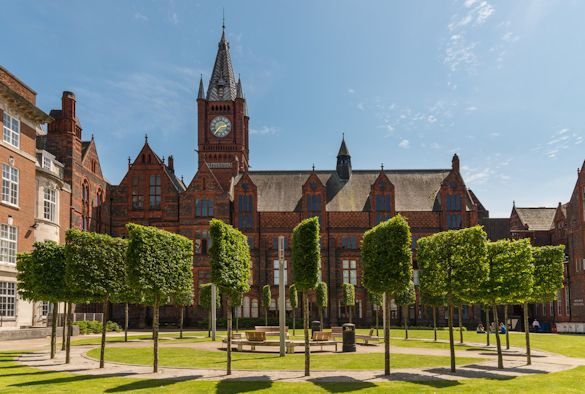
With Sustainability Week on the horizon (26th February-1st March 2024) and Liverpool 2031 setting out how we will further embed sustainability into our policies, processes and practices across the institution, it seems a good time to reflect on the huge strides the University has made towards becoming a more sustainable institution.
Climbing the Sustainability league tables
At the end of 2023 the University was ranked in the world’s Top 50 QS Sustainability rankings for its environmental and social impact, having risen 100 places on the previous year. There was further good news from the 2023/24 People and Planet League where the University was ranked among the UK’s top 50 for its environmental and ethical performance.
This was a further improvement from last year’s score, with Liverpool retaining its ‘2.1 class’ sustainability status, placing 12th amongst Russell Group universities, 5th in the Northwest and 1st in Liverpool.
Sustainability Strategy
Following the launch of the new strategic framework Liverpool 2031, which sets out an ambitious new vision and priorities for sustainability as one of two cross-cutting themes, the Sustainability Board has commissioned a new Sustainability Strategy, which will be supported by our existing Climate Plan and soon to be launched Biodiversity Plan. The strategy will be published in the Summer of 2024, in the meantime you can refresh yourself with the Liverpool 2031 commitments here.
Sustainable Labs
13 audits were carried out throughout January 2024 for the Laboratory Efficiency Assessment Framework (LEAF) including 4 audits for the gold award. The total LEAF awards at the university now stands at: 72 awards in total, 55 bronze, 11 silver and 6 gold. There will be opportunity to hear more about the LEAF framework during Sustainability Week, please find further details here.
Continued support of the Sustainable Development Goals
The Sustainable Development Goals Report 2022-23 was published in December 2023, capturing the activities across research, teaching, public engagement and campus operations which support each of the 17 SDGs, in alignment with the University’s strategic vision and objectives. Projects and collaborations such as Clean Air Africa , our world-leading expertise in Human Rights Law as well as the extensive research the University undertakes around health inequalities and climate change continue to make an impact on the lives of people around the world and help to shape a safer, fairer and healthier planet.
Standardised Carbon Emissions Framework
The University has adopted the sector-specific carbon emissions framework developed by EAUC, AUDE and BUFDG. The sustainability team is coordinating a data collection exercise from departments across the university including procurement and estates and applying DEFRA conversation factors in order to baseline scope 1, 2 and 3 carbon emissions. This information will be used to inform new metrics in the revised Sustainability Strategy, due to be published in June 2024.
Fairtrade Accreditation
A Fairtrade working group was set up this month to begin the process of securing Fairtrade accreditation for the University by Spring 2025. The group is made up of representatives from Professional Services, the Guild and academic staff who will meet regularly over the course of 12 months to coordinate and deliver the mandatory tasks set by SOS-UK & Fairtrade. For more information about this, please contact sustainability@liverpool.ac.uk
For more information on the University’s Sustainability strategy please visit https://www.liverpool.ac.uk/sustainability/ and be sure to check out the full programme for Sustainability Week here.